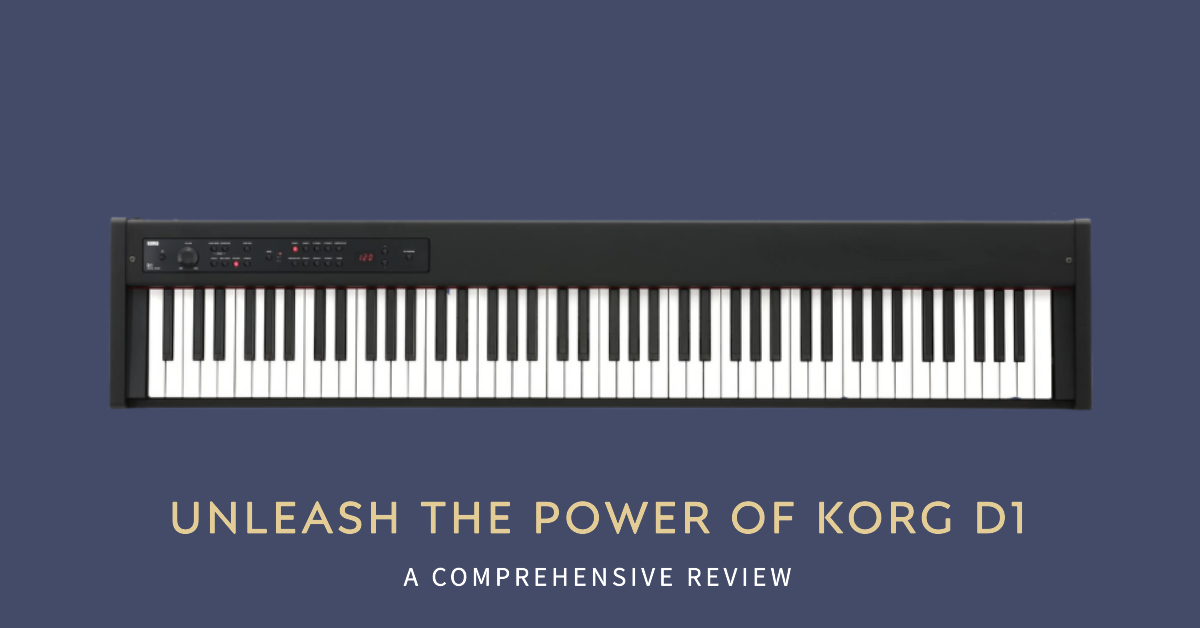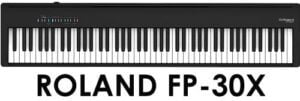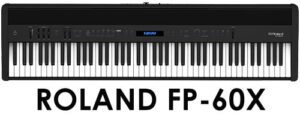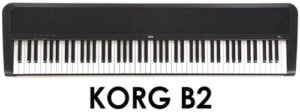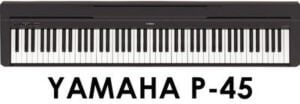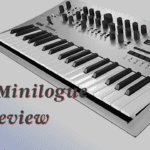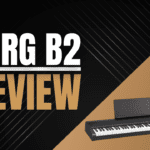Korg is a renowned name in the world of musical instruments. Established in 1962 in Japan, Korg is celebrated for its innovative and high-quality electronic musical instruments and recording equipment. The company has been a game-changer in the industry, with a rich history of creating some of the most iconic synthesizers, keyboard instruments, and music workstations.
One of Korg’s recent offerings is the Korg D1, an entry-level stage piano that promises a premium feel without breaking the bank. The Korg D1 is specifically marketed towards beginners and gigging musicians who need a portable yet robust instrument. With its sleek design, weighted keys, and an array of features, the Korg D1 aims to deliver the playing feel of a grand piano, whether you are on stage or practising in your room.
In this article, we will take an in-depth look at the Korg D1, examining its design, keyboard action, sound quality, features, and performance. We will also compare it with other models and address frequently asked questions to help you make an informed decision.
Stay tuned as we unravel the offerings of the Korg D1.
Korg D1 Specs
- Keyboard: 88 keys (A0–C8), RH3 (Real Weighted Hammer Action 3) Keyboard
- Touch Control: Five types
- Pitch: Transpose, Fine tuning
- Temperament: 9 types
- Sound Generation: Stereo PCM
- Maximum Polyphony: 120 voices (max)
- Sounds: 30 sounds (10 x 3 banks)
- Effects: Brilliance, Reverb and Chorus (3 levels each)
- Demo Songs: 30 songs
- Metronome: Tempo, Time signature, and Sound controls
- Pedals: Damper (supports half-pedalling)
- Connections: LINE OUT (L/MONO and R), MIDI (In, Out), Headphones, Damper Pedal
- Power Supply: DC 9V power adapter
- Power Consumption: 1.5W
- Dimensions (W x D x H): 52.95 x 10.16 x 5.04 inches (1,346 x 258 x 128 mm)
- Weight: 16 kg / 35.27 lbs (excluding power adapter)
- Included Items: AC adapter, Music stand, Damper pedal
Design and Build Quality
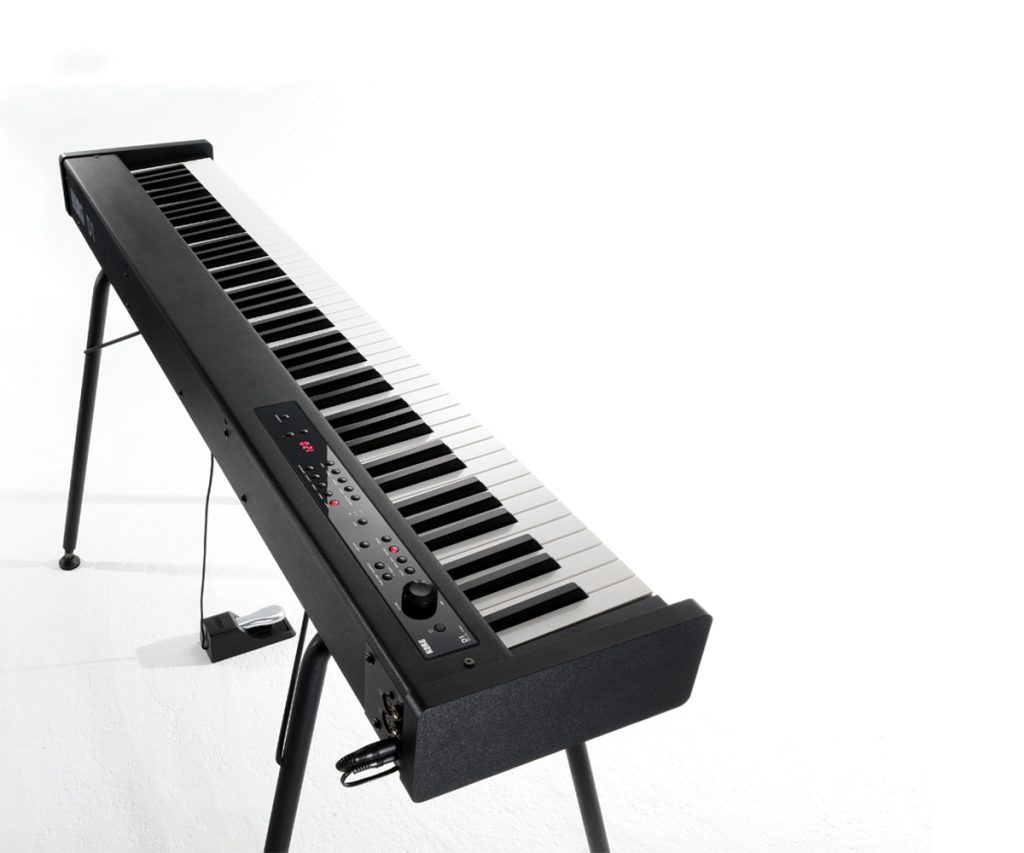
The Korg D1 boasts a sleek and elegant design that is both functional and aesthetically pleasing. Here’s an overview:
- Design Aesthetics
- The piano sports a minimalist design, focusing on simplicity and elegance.
- It comes in a classic black colour, which adds a touch of sophistication.
- Material and Build
- The Korg D1 is built with sturdy materials that ensure durability.
- Despite its robust build, the piano has a compact form factor, making it suitable for small spaces.
- Portability and Weight
- One of the highlights of the Korg D1 is its portability.
- It is lightweight compared to many stage pianos, a boon for gigging musicians.
- The weight is balanced, ensuring it is not too heavy to compromise portability, nor too light to feel flimsy.
- Comparison with Other Models
- Compared to other models like the Korg B1, the D1 is more portable and stage-friendly.
- The design is more streamlined and professional compared to entry-level models.
Korg D1 excels in design and build quality. It’s sleek design and sturdy build make it an excellent choice for beginners and professional musicians. The portability is a significant advantage for those who need a piano on the go. Compared to other models, it has a more professional look and feel.
Keyboard and Action
The keyboard and action are crucial aspects of any digital piano, and the Korg D1 is no exception. Let’s delve into the details:
- Description of the Keys
- The Korg D1 features a standard 88-key keyboard.
- The keys are full-sized, replicating the feel of an acoustic piano.
- The keytops have a high-quality texture, ensuring a comfortable playing experience.
- Feel of the Action
- The action on the Korg D1 is described as Real Weighted Hammer Action 3 (RH3).
- This action replicates the feel of an acoustic piano, with a heavier touch in the lower register that becomes lighter as you move up the keyboard.
- The response and feedback from the keys are excellent, providing an expressive playing experience.
- Weighted Keys and Their Importance
- The Korg D1 features weighted keys essential for a realistic piano feel.
- Weighted keys help in building finger strength and technique, which is crucial for playing an acoustic piano.
- They also allow for more expressive playing, as they respond to the velocity of your touch.
- Comparison with Other Models in Keyboard Quality
- Compared to other models like the Korg B1, the D1’s action is more refined and realistic.
- The key texture and response are superior to many entry-level digital pianos.
- The weighted action is comparable to higher-end models, making the D1 an excellent value for its price range.
The keyboard and action of the Korg D1 are exceptional, especially considering its price point. The Real Weighted Hammer Action 3 ensures a realistic and expressive playing experience, while the weighted keys are essential for building proper piano technique. Compared to other models, the Korg D1 stands out in keyboard quality, making it an excellent choice for both beginners and experienced pianists.
- Read Also: Korg B2 (B2SP | B2N) Review
Sound Quality
Sound quality is paramount in a digital piano, and the Korg D1 delivers impressively in this department. Here’s what you need to know:
- Overview of Sound Capabilities
- The Korg D1 comes with a rich set of sounds, including various pianos and electric pianos.
- It features high-quality samples that replicate the sounds of acoustic instruments faithfully.
- Piano and Electric Piano Sounds
- The acoustic piano sounds are rich and full-bodied, with excellent dynamics.
- The electric piano sounds are versatile, suitable for a range of music styles from jazz to rock.
- Other Instrument Sounds
- Besides pianos, the Korg D1 offers other instrument sounds such as:
- Harpsichord
- Organ
- Strings
- Synth pads
- These sounds are useful for adding variety to your playing and for different genres of music.
- Besides pianos, the Korg D1 offers other instrument sounds such as:
- Polyphony and Its Importance
- The Korg D1 boasts a 120-voice polyphony.
- Polyphony refers to the number of notes that can be played simultaneously.
- High polyphony is essential for complex pieces, especially when using the sustain pedal, as it prevents note dropouts.
The sound quality of the Korg D1 is exceptional, with a wide range of instrument sounds and high polyphony. The piano and electric piano sounds are particularly noteworthy, with realistic samples that are expressive and dynamic. The additional instrument sounds and high polyphony make the Korg D1 a versatile and capable digital piano for practice and performance.
Features
The Korg D1 is not just about great sound and keyboard action; it also comes packed with many features that enhance its functionality and usability. Here’s an overview:
- MIDI Compatibility
- The Korg D1 is MIDI-compatible, allowing it to communicate with other MIDI devices and computers.
- This is particularly useful for recording, composing, and using virtual instruments.
- Connectivity Options
- The piano offers several connectivity options including:
- Line Out jacks for connecting to amplifiers or PA systems.
- Damper pedal jack.
- MIDI In/Out for connecting to other MIDI devices.
- However, it’s worth noting that the Korg D1 does not have USB or Wireless connectivity, which might be a limitation for some users.
- The piano offers several connectivity options including:
- Additional Features
- The Korg D1 comes with additional features that enhance the playing experience:
- A built-in metronome for practising timing and rhythm.
- A damper pedal that supports half-pedalling, providing more expressive playing.
- Layer mode for combining two sounds.
- Key transpose and tuning functions.
- The Korg D1 comes with additional features that enhance the playing experience:
The Korg D1 is feature-rich, with MIDI compatibility and various connectivity options. The inclusion of a metronome and damper pedal adds to its functionality, making it a versatile instrument for both practice and performance. However, the lack of USB and Wireless connectivity is a drawback that users should consider.
- Read Also: Korg Grandstage Review
Performance and Usability
When it comes to performance and usability, the Korg D1 excels in various aspects. Here’s what makes it stand out:
- User-Friendliness
- The Korg D1 is designed with user-friendliness in mind.
- The interface is intuitive, with clearly labelled buttons and functions.
- Even if you are new to digital pianos, you will find the Korg D1 easy to navigate and use.
- Suitability for Beginners and Gigging Musicians
- The Korg D1 is highly suitable for both beginners and gigging musicians.
- For beginners, the weighted keys and built-in metronome are invaluable for building proper technique.
- For gigging musicians, the portability and range of sounds make it an excellent choice for live performances.
- On-Stage Performance
- The Korg D1 shines in on-stage performance.
- The high-quality sounds, coupled with the realistic keyboard action, make it a joy to play in a live setting.
- The line-out jacks allow for easy connection to amplification systems.
- Daily Practice
- The Korg D1 is also well-suited for daily practice.
- The built-in metronome helps with rhythm practice.
- The headphone jack allows for silent practice, which is great for not disturbing others.
The Korg D1 is a high-performing and user-friendly digital piano that is well-suited for a wide range of musicians. Whether you are a beginner looking to learn, a gigging musician needing a reliable stage piano, or someone who needs a quality instrument for daily practice, the Korg D1 has got you covered.
Comparison with Other Models
When considering the Korg D1, it’s essential to compare it with other models in the market. Let’s see how it stacks up:
- Korg D1 vs. Korg B1
- The Korg D1 has a more refined keyboard action (RH3) compared to the Korg B1.
- The D1 is more portable and stage-friendly, while the B1 is more suited for home use.
- The D1 offers a wider range of sounds compared to the B1.
- Korg D1 vs. Yamaha P-125
- The Yamaha P-125 has a slightly brighter piano sound, while the Korg D1 has a warmer tone.
- The P-125 features USB connectivity, which the D1 lacks.
- Both have excellent keyboard action, but the D1’s RH3 action might be more appealing to those looking for an acoustic piano feel.
- Korg D1 vs. Other Relevant Models
- Compared to the Roland FP-30, the Korg D1 has a more authentic piano sound but lacks Bluetooth connectivity which the FP-30 has.
- The Casio PX-160 has a similar price range, but the Korg D1 edges out in build quality and keyboard action.
The Korg D1 holds its own against other models in its price range. It excels in keyboard action, sound quality, and portability. However, it falls short in connectivity options compared to some models like the Yamaha P-125 and Roland FP-30. When choosing a digital piano, it’s essential to consider what features are most important to you and choose accordingly.
Conclusion
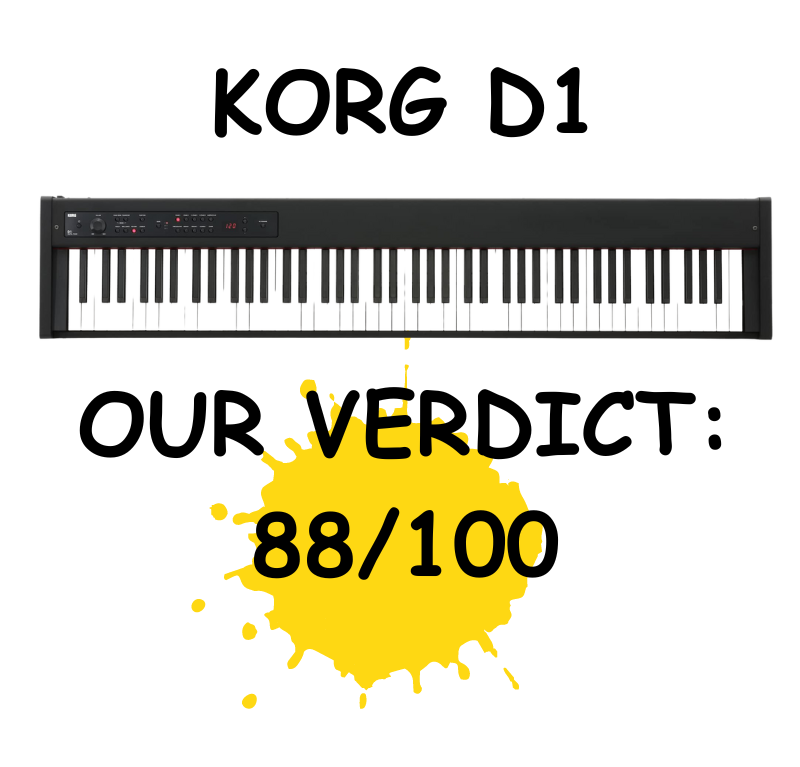
The Korg D1 is an impressive entry-level stage piano that packs a punch in terms of performance, sound quality, and features. Here’s a summary:
- Strengths
- Real Weighted Hammer Action 3 (RH3) for an authentic playing experience.
- High-quality sounds, including acoustic and electric pianos.
- Portable and stage-friendly design.
- Intuitive and user-friendly interface.
- Weaknesses
- Lack of USB and Wireless connectivity.
- Limited onboard controls and settings compared to some competitors.
- Recommendations for Potential Buyers
- The Korg D1 is highly recommended for both beginners and gigging musicians.
- If you prioritize keyboard action and sound quality, the D1 is an excellent choice.
- However, if connectivity options are crucial for you, you might want to consider other models.
- Final Thoughts
- The Korg D1 stands out as a solid digital piano with a focus on performance and sound quality.
- Its portability makes it versatile, and its keyboard action is one of the best in its price range.
- While it has its limitations, the Korg D1 offers exceptional value and is a worthy investment for any pianist.
FAQs
Here are some frequently asked questions about the Korg D1:
- Is the Korg D1 heavy?
- The Korg D1 is relatively lightweight for a stage piano. It’s designed to be portable, making it suitable for gigging musicians.
- Does the Korg D1 have weighted keys?
- Yes, the Korg D1 features Real Weighted Hammer Action 3 (RH3), which means the keys are weighted similar to an acoustic piano. This provides a more realistic playing experience.
- What is the difference between P125 and D1?
- The Yamaha P-125 has a brighter piano sound and USB connectivity, while the Korg D1 has a warmer tone and superior keyboard action. The choice between the two depends on personal preference and specific needs.
- Are Korg keyboards better than Yamaha?
- Both Korg and Yamaha are reputable brands that produce high-quality keyboards. The choice between Korg and Yamaha depends on personal preference, as both brands have their strengths. Korg tends to have a warmer piano sound, while Yamaha’s sound is often described as brighter.

